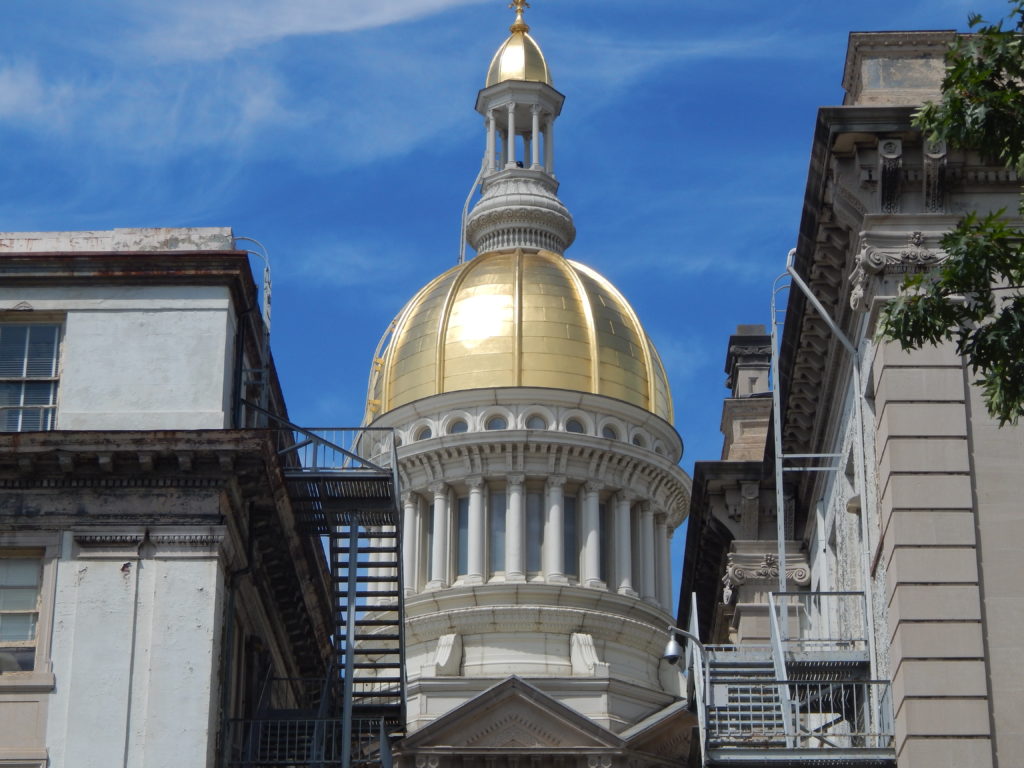
They’re called “courtesy cards” – at least officially.
Many New Jersey drivers know them as “Get Out of Jail Free” cards.
These are business cards doled out by various law enforcement officers to relatives, friends, and sometimes, just people they meet.
They generally show the name of the officer and his, or her, association – a police department, a sheriff’s office or a police union like the PBA or FOP.
These cards have one overriding purpose – to help a driver avoid getting a ticket.
A driver who is stopped by the cops shows, say, a PBA card, and is often on his way, no further action required.
There’s nothing new about this.
Nonetheless, the state’s Comptroller’s Office just produced a report highlighting and criticizing the practice.
Here’s how the executive summary of the report began:
“The New Jersey Office of the State Comptroller (OSC) examined over 500 motor vehicle stops conducted by New Jersey State Police (NJSP) that ended with no enforcement. OSC looked at body-worn camera footage of stops that are rarely, if ever, watched – stops where tickets were not given, arrests were not made, and no one was even ordered to exit their vehicle.”
Hmm. Why was that?
Simple. The drivers had a police “Get Out of Jail Free” card.
“Sometimes, the motorist boldly handed over a courtesy card,” the report said with some degree of naivety. It then added that:
“The stop resolved relatively quickly with the trooper offering some version of ‘you’re good,’”
The report presented a number of video exchanges to prove the point.
Viewers saw a guy stopped for speeding who admitted to having “two glasses” of alcohol. No detail on what his drink actually was.
But after showing the trooper “his card,” he was told to move on. It is true that the trooper warned him not to speed after drinking on “my highway” again, but the driver was not ticketed.
Another video showed a woman stopped for driving in excess of 100 miles per hour. She proved to the trooper that her father was a police lieutenant and did not get a ticket.
“In short, this two-tiered system of justice that provides differing treatment for those with law enforcement connections and those without is unethical, discriminatory, and fundamentally unfair. It also contributes to making New Jersey roads less safe,” the report said.
It’s hard to argue with that conclusion.
The report, most seriously, noted that courtesy cards benefitted motorists suspected of serious offenses – like driving drunk.
Years ago, at least, the unwritten rule of thumb was that PBA cards worked only for such things as speeding or ignoring a Stop Sign.
Among the reforms recommended by the Comptroller are explicit orders to police not to consider any law enforcement cards when stopping a motorist. And then there is this:
“The Legislature should strongly consider whether to institute fines or other penalties for the distribution by sale or gift of any courtesy card or membership card, shield, or other device, where it can be reasonably inferred by the recipient that display of the item will have the result that the law will be enforced less rigorously.”
In plain language, that suggests a police officer could be fined or disciplined for handing out a business or PBA card.
Excuse the cynicism, but does anyone think that’s going to happen?
Follow New Jersey politics for a while and you learn that the distribution of “Get Out of Jail Free” cards is as common as high property taxes and the luxury of not pumping your own gas.
Hard to see that changing,
(Visited 46 times, 46 visits today)
PBA cards, also known as Police Benevolent Association cards, are a common form of identification that is often carried by law enforcement officers in New Jersey. These cards are typically issued by local police unions and provide certain privileges and benefits to the cardholder. In this comprehensive guide, we will delve into the details of PBA cards and provide insights from Insider NJ on their use and significance.
One of the main benefits of carrying a PBA card is the ability to receive discounts and special offers from businesses and vendors that support law enforcement. These discounts can range from discounted meals at restaurants to reduced rates on services such as car repairs or home improvement. Many businesses in New Jersey proudly display signs indicating that they offer discounts to PBA cardholders, making it easy for officers to take advantage of these perks.
In addition to discounts, PBA cards can also be used to gain access to certain events or locations that are typically restricted to law enforcement personnel. For example, some bars or clubs may allow PBA cardholders to bypass long lines or cover charges, while others may offer exclusive access to VIP areas or events. This can be a valuable benefit for officers looking to unwind and socialize with their colleagues after a long day on the job.
It is important to note that while PBA cards can provide certain privileges and benefits, they are not a free pass to break the law or abuse authority. Officers who misuse their PBA cards or attempt to use them inappropriately can face disciplinary action from their department or union. It is crucial for cardholders to use their PBA cards responsibly and ethically in order to maintain the integrity of the program.
Insider NJ has reported on various controversies surrounding PBA cards in New Jersey, including instances where officers have been accused of using their cards to receive preferential treatment or avoid consequences for their actions. These incidents have sparked debates about the transparency and accountability of the PBA card system, leading some to call for stricter regulations and oversight.
Overall, PBA cards can be a valuable tool for law enforcement officers in New Jersey, providing them with discounts, perks, and access to exclusive events. However, it is important for cardholders to use their cards responsibly and ethically in order to uphold the integrity of the program. By following the guidelines and regulations set forth by their department or union, officers can make the most of their PBA cards while maintaining the trust and respect of the communities they serve.



